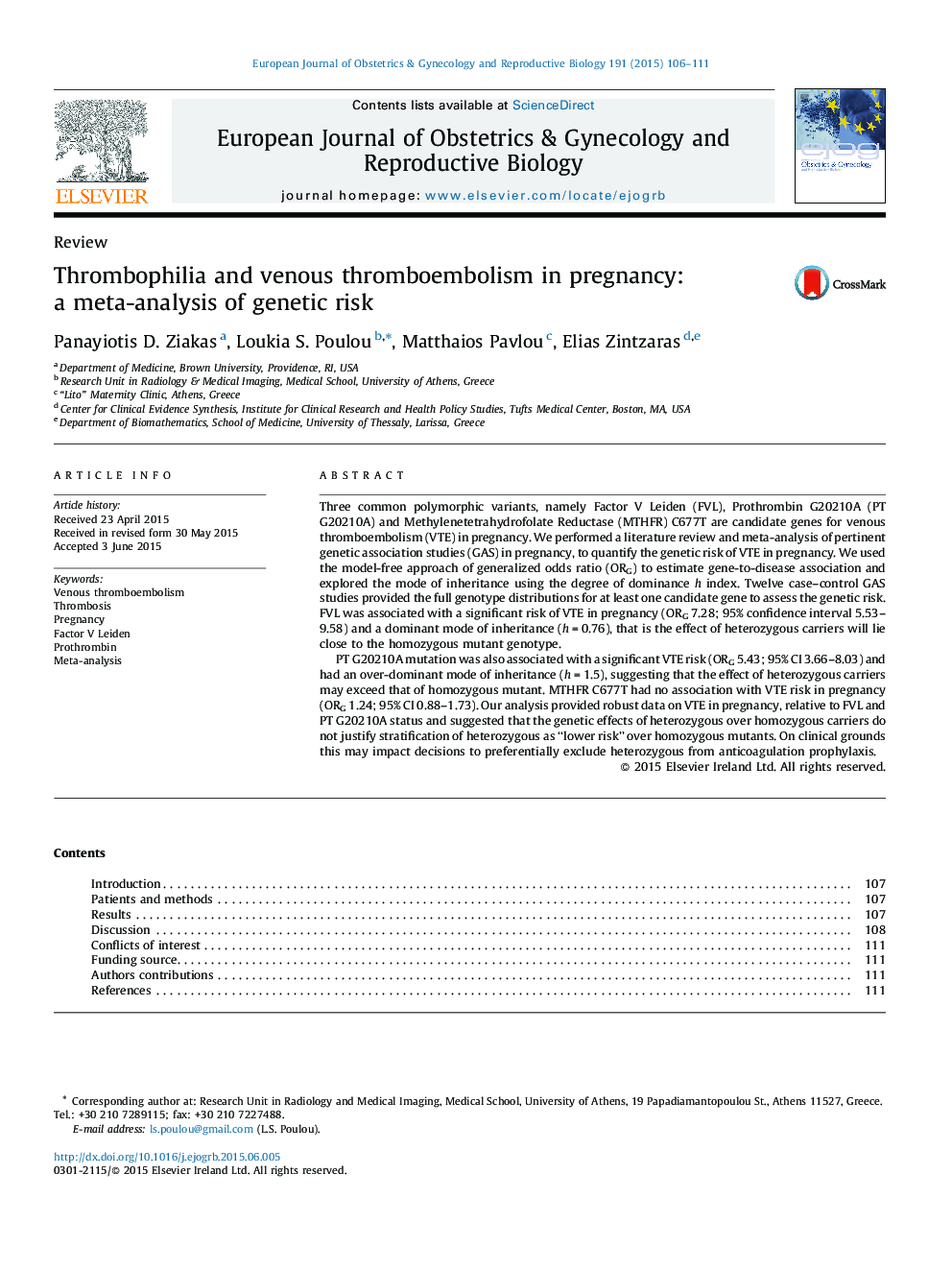| Article ID | Journal | Published Year | Pages | File Type |
|---|---|---|---|---|
| 3919517 | European Journal of Obstetrics & Gynecology and Reproductive Biology | 2015 | 6 Pages |
Three common polymorphic variants, namely Factor V Leiden (FVL), Prothrombin G20210A (PT G20210A) and Methylenetetrahydrofolate Reductase (MTHFR) C677T are candidate genes for venous thromboembolism (VTE) in pregnancy. We performed a literature review and meta-analysis of pertinent genetic association studies (GAS) in pregnancy, to quantify the genetic risk of VTE in pregnancy. We used the model-free approach of generalized odds ratio (ORG) to estimate gene-to-disease association and explored the mode of inheritance using the degree of dominance h index. Twelve case–control GAS studies provided the full genotype distributions for at least one candidate gene to assess the genetic risk. FVL was associated with a significant risk of VTE in pregnancy (ORG 7.28; 95% confidence interval 5.53–9.58) and a dominant mode of inheritance (h = 0.76), that is the effect of heterozygous carriers will lie close to the homozygous mutant genotype.PT G20210A mutation was also associated with a significant VTE risk (ORG 5.43; 95% CI 3.66–8.03) and had an over-dominant mode of inheritance (h = 1.5), suggesting that the effect of heterozygous carriers may exceed that of homozygous mutant. MTHFR C677T had no association with VTE risk in pregnancy (ORG 1.24; 95% CI 0.88–1.73). Our analysis provided robust data on VTE in pregnancy, relative to FVL and PT G20210A status and suggested that the genetic effects of heterozygous over homozygous carriers do not justify stratification of heterozygous as “lower risk” over homozygous mutants. On clinical grounds this may impact decisions to preferentially exclude heterozygous from anticoagulation prophylaxis.
